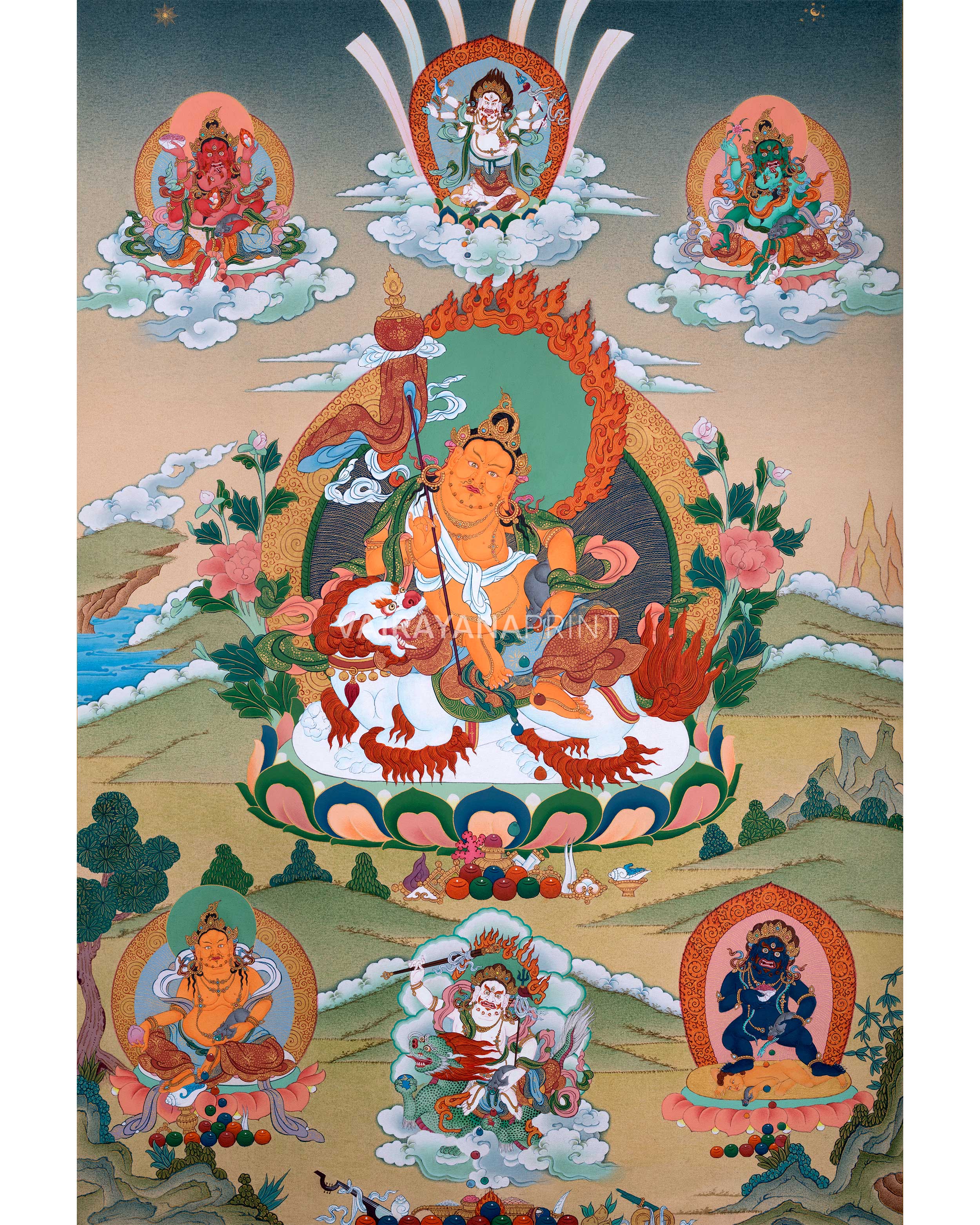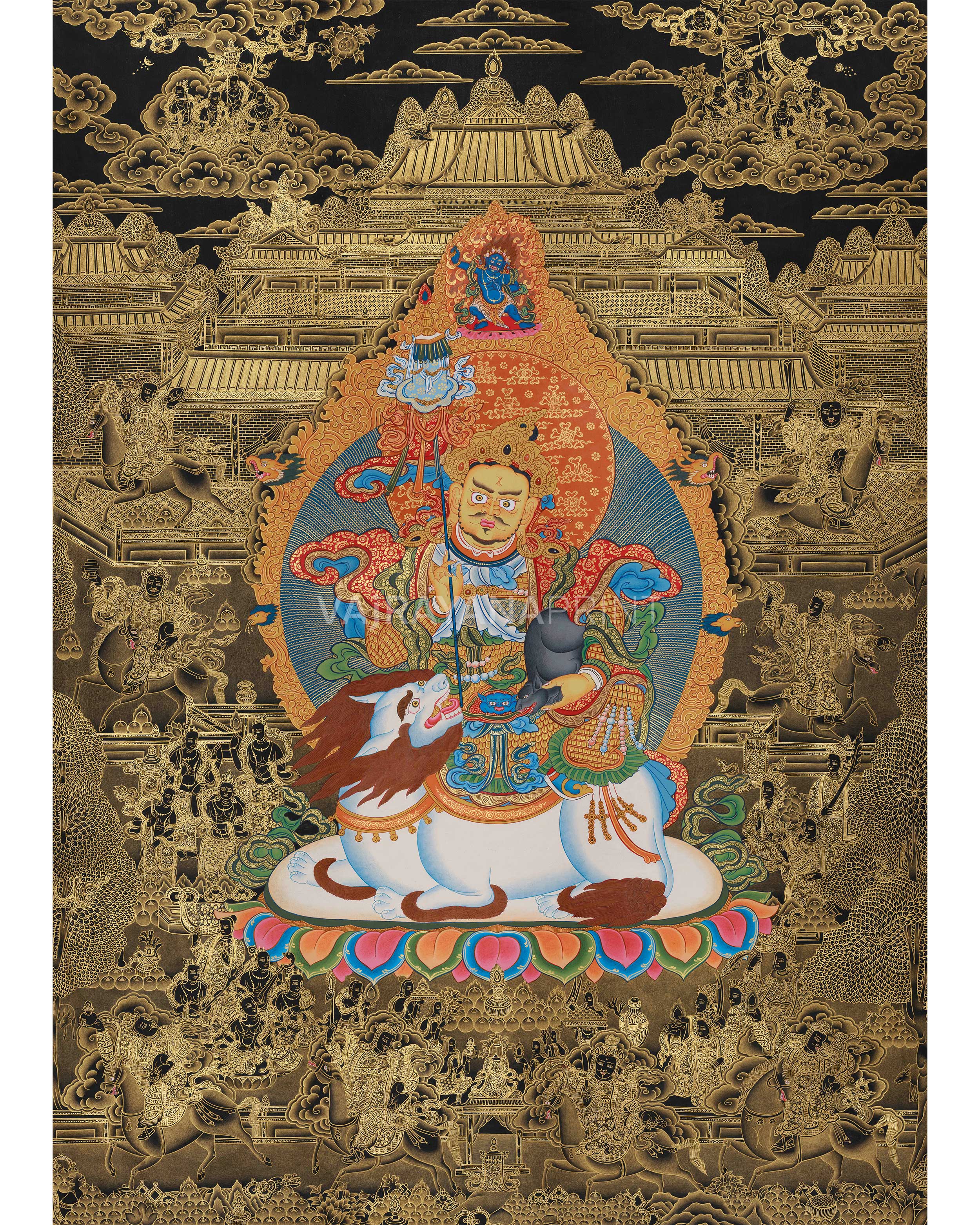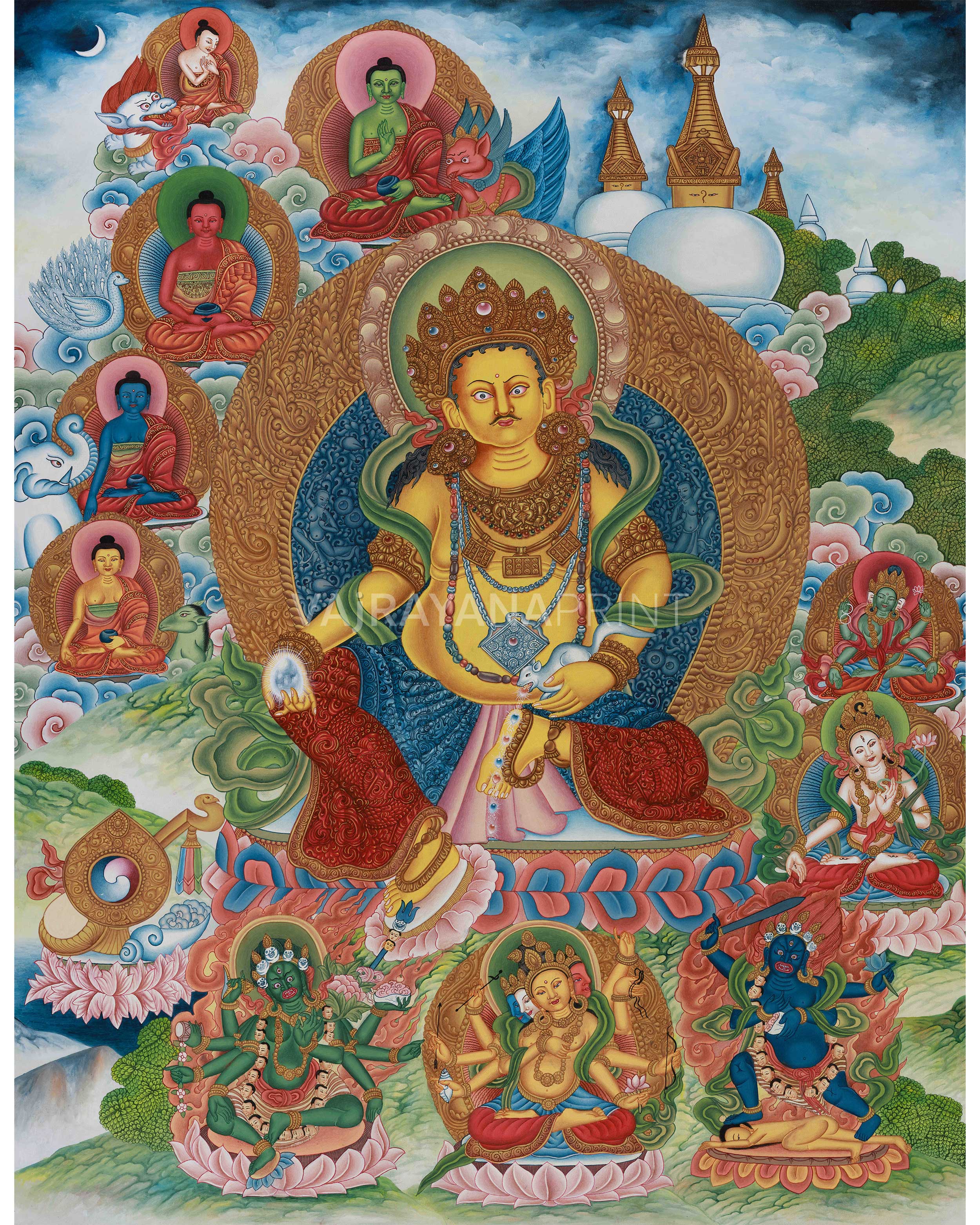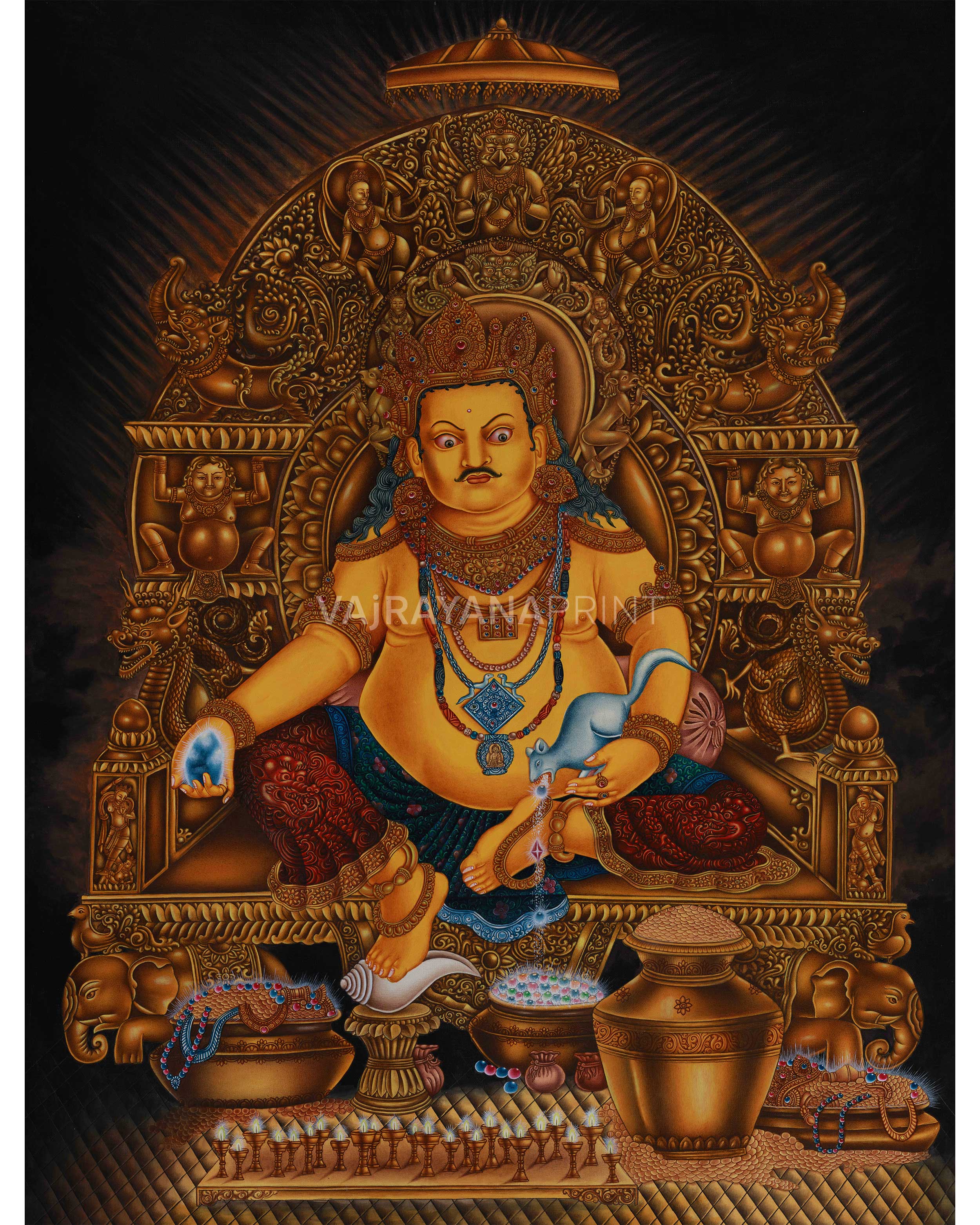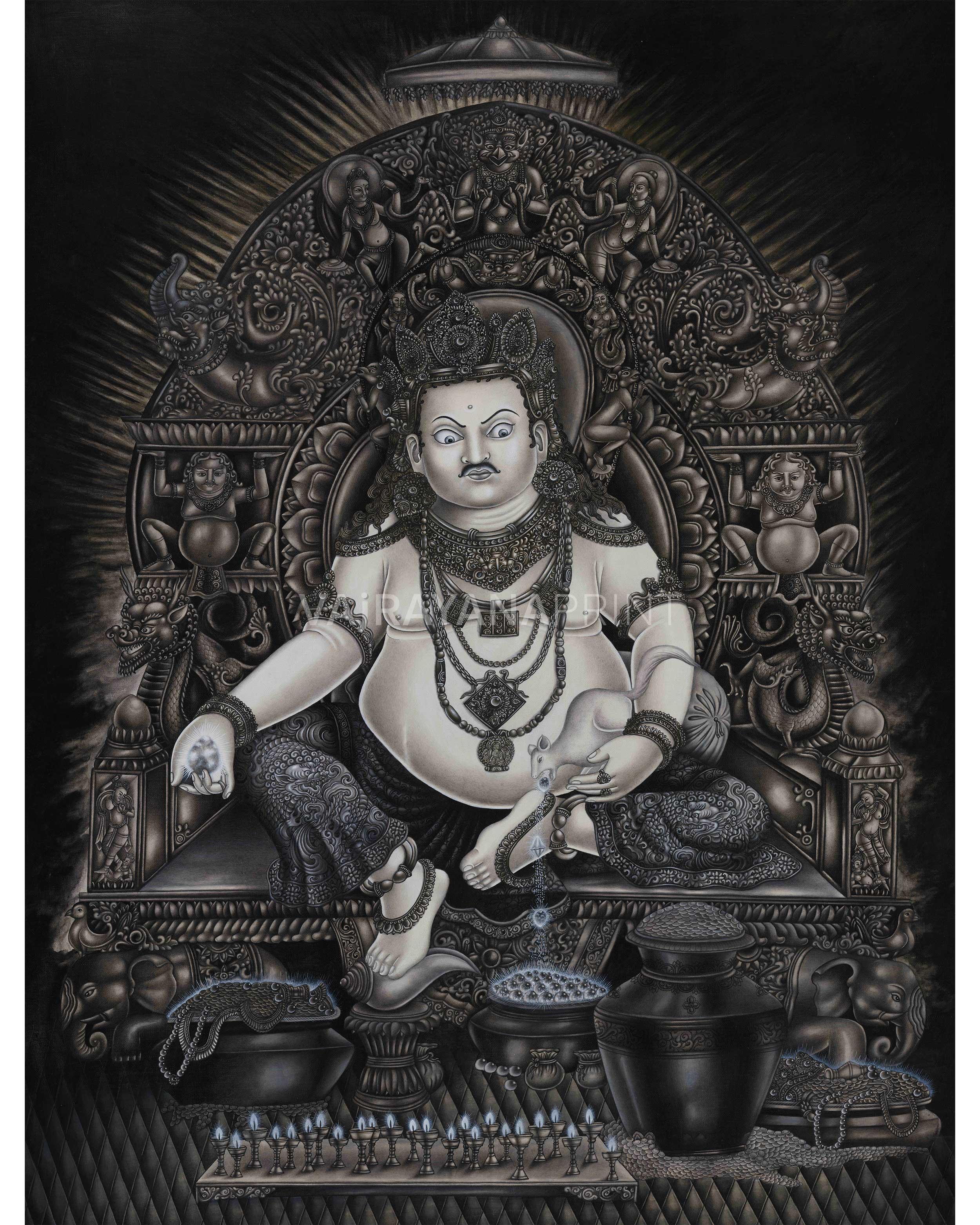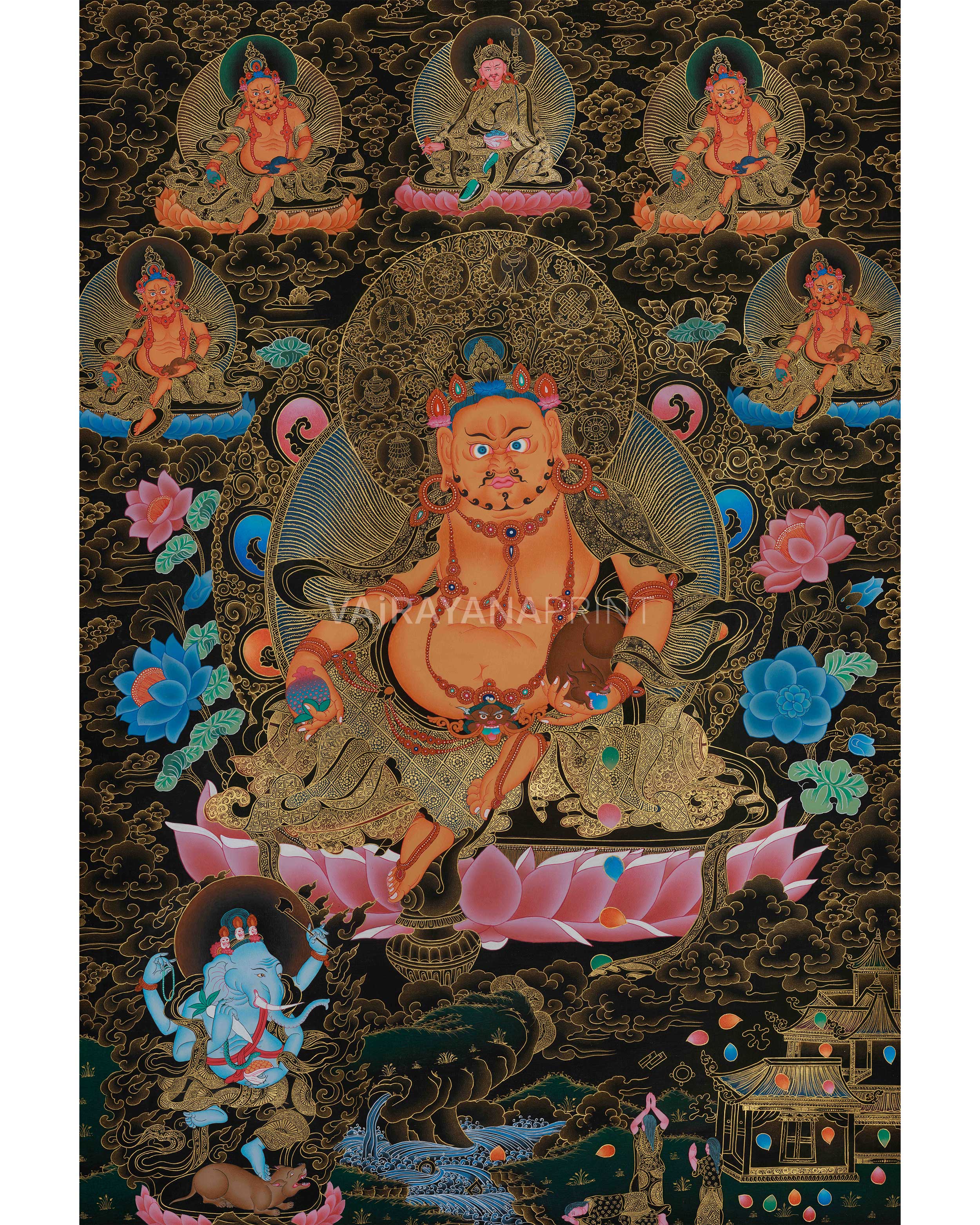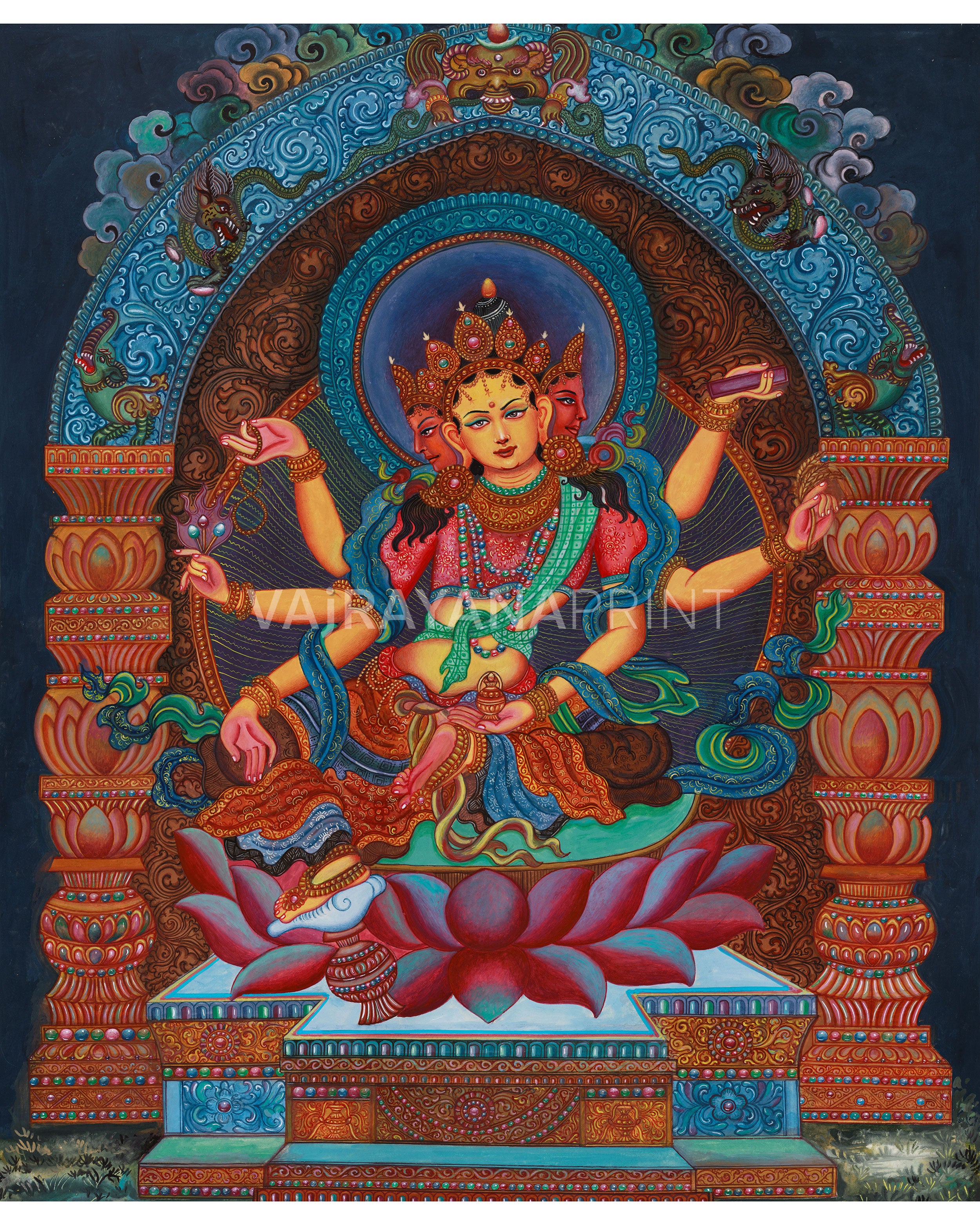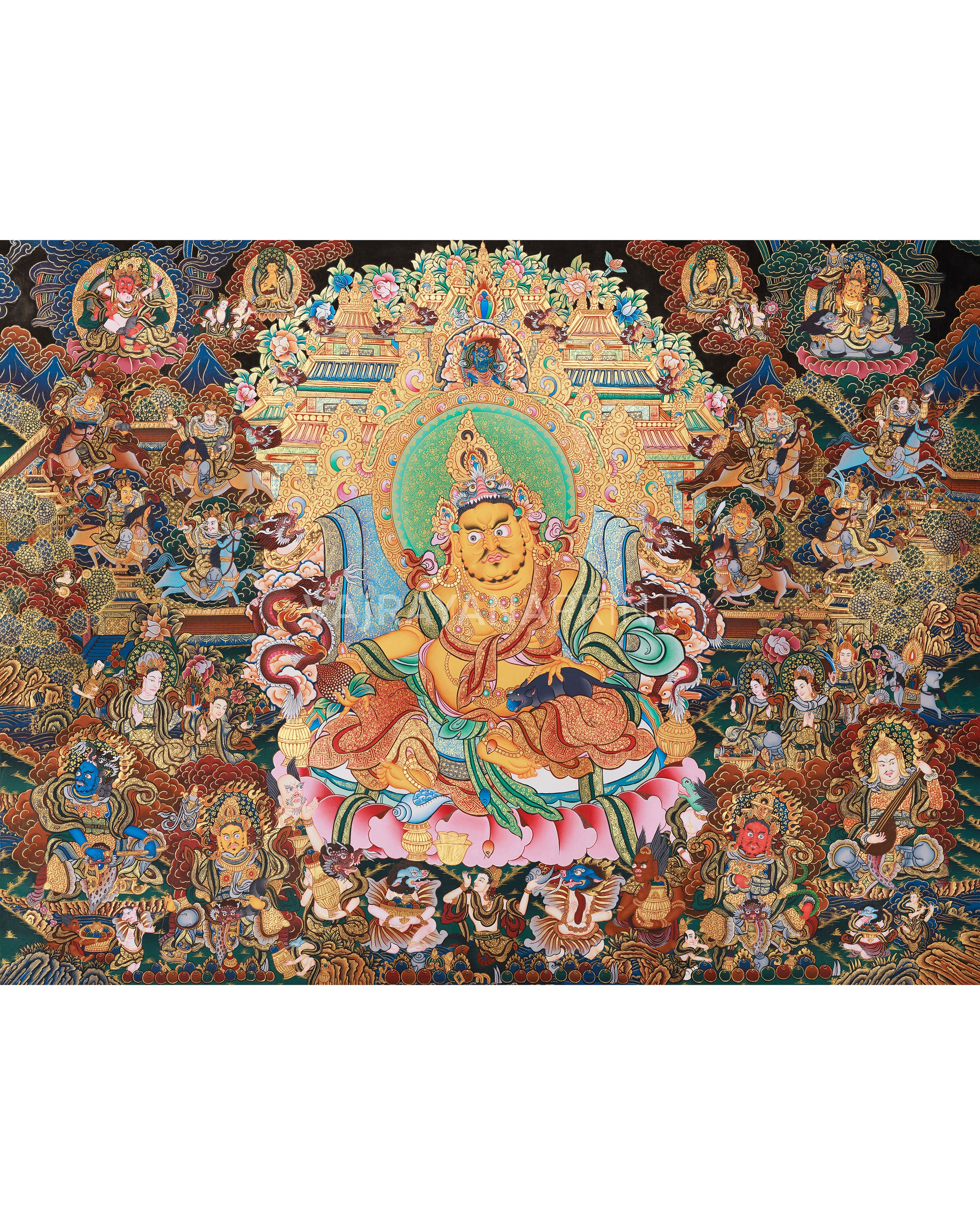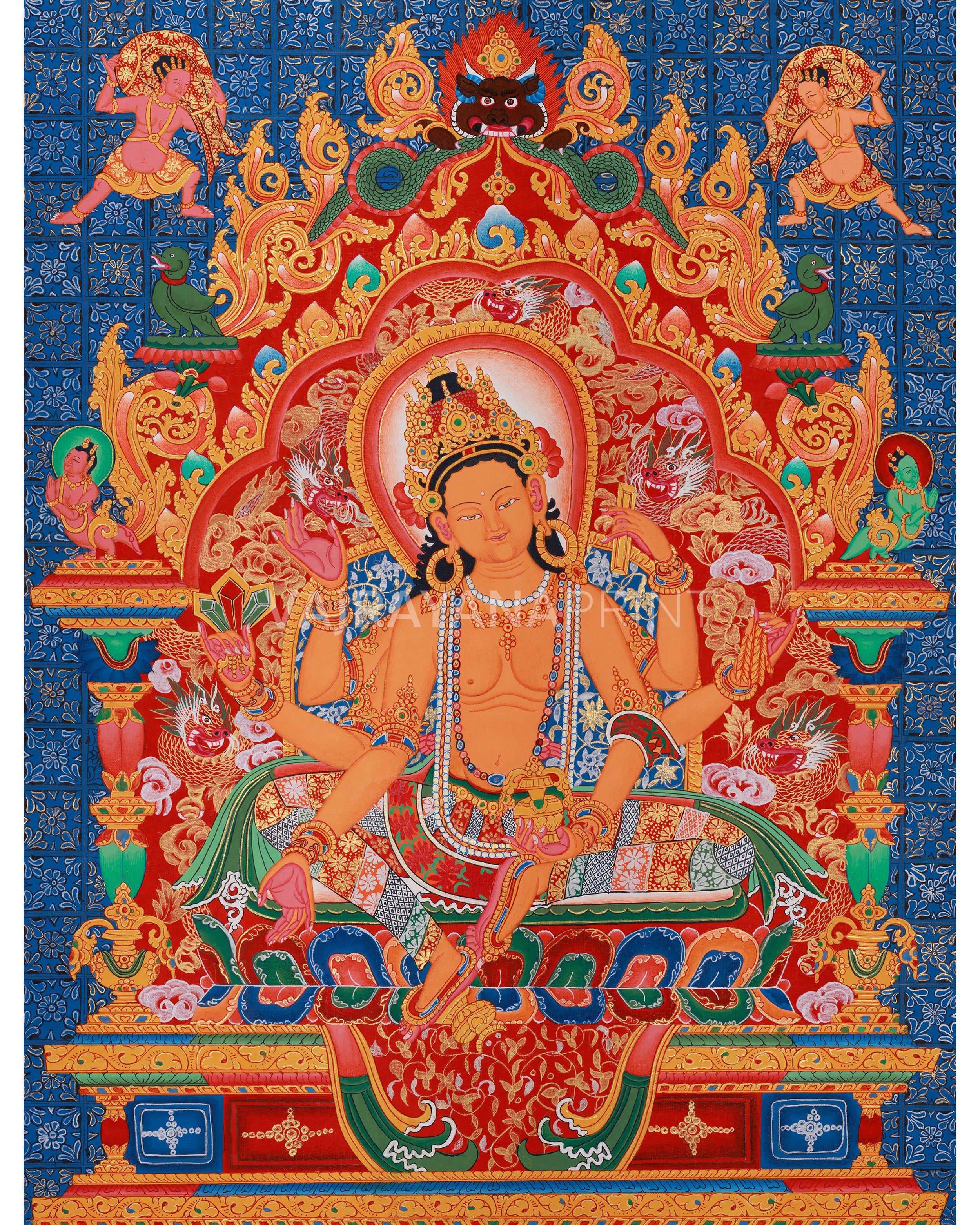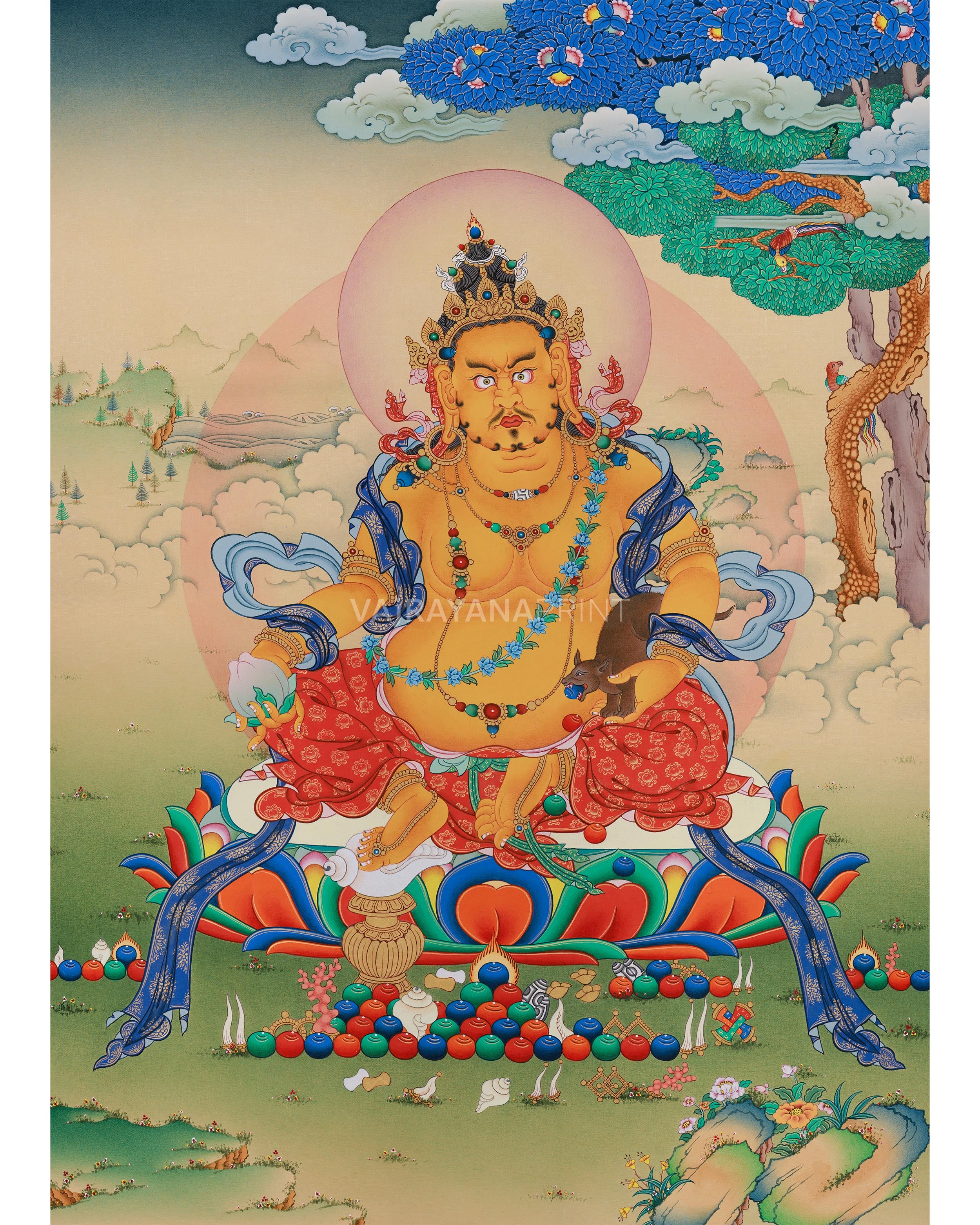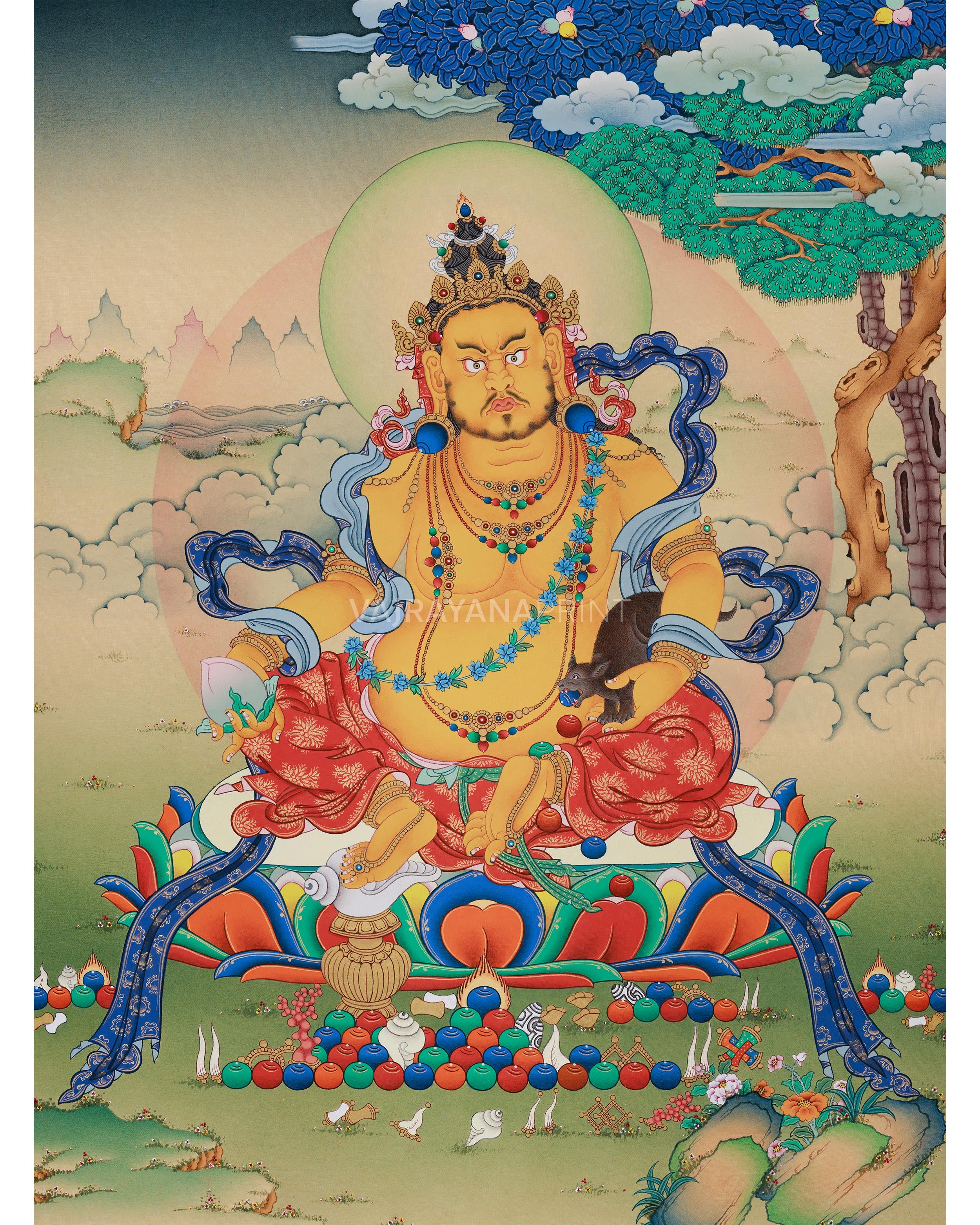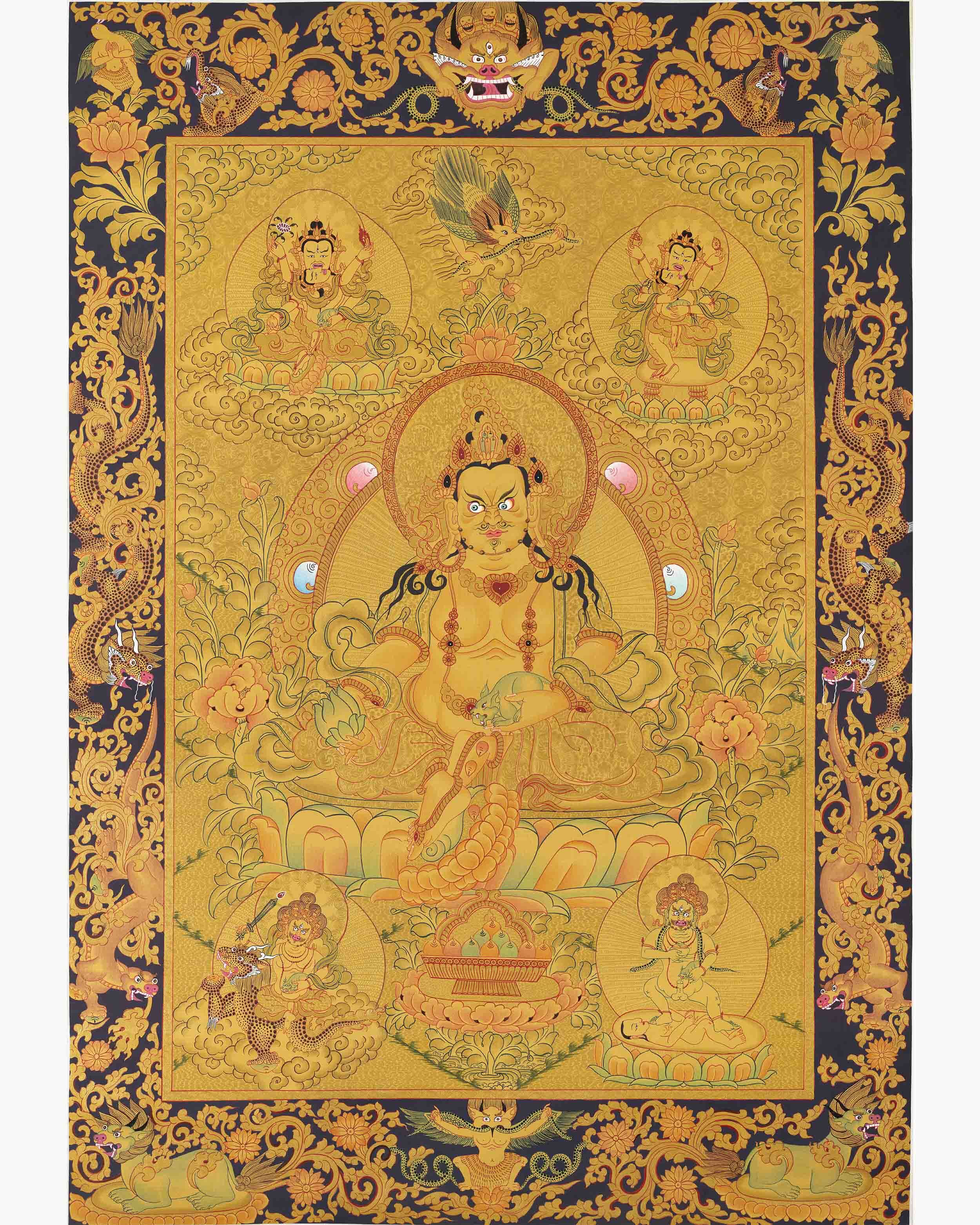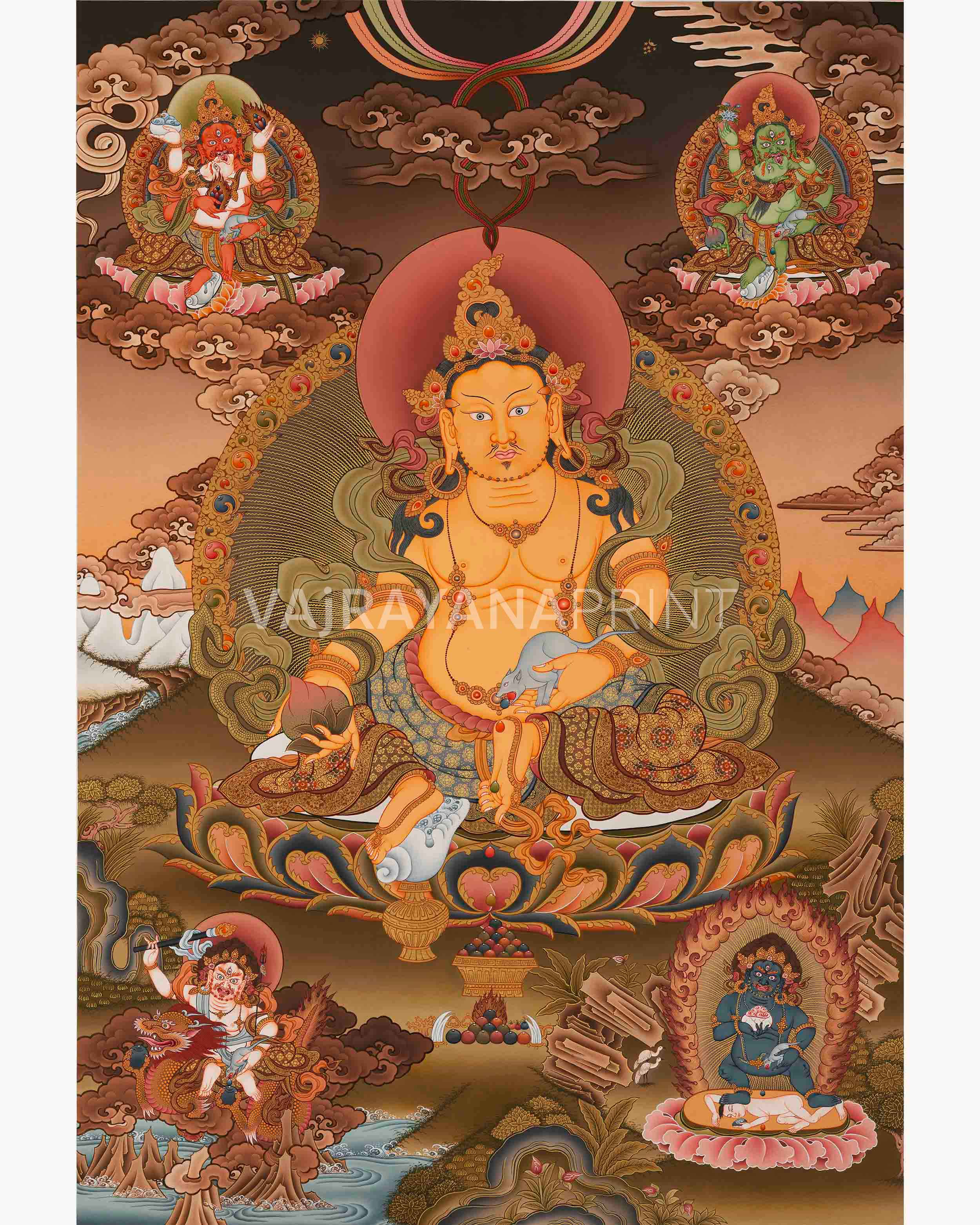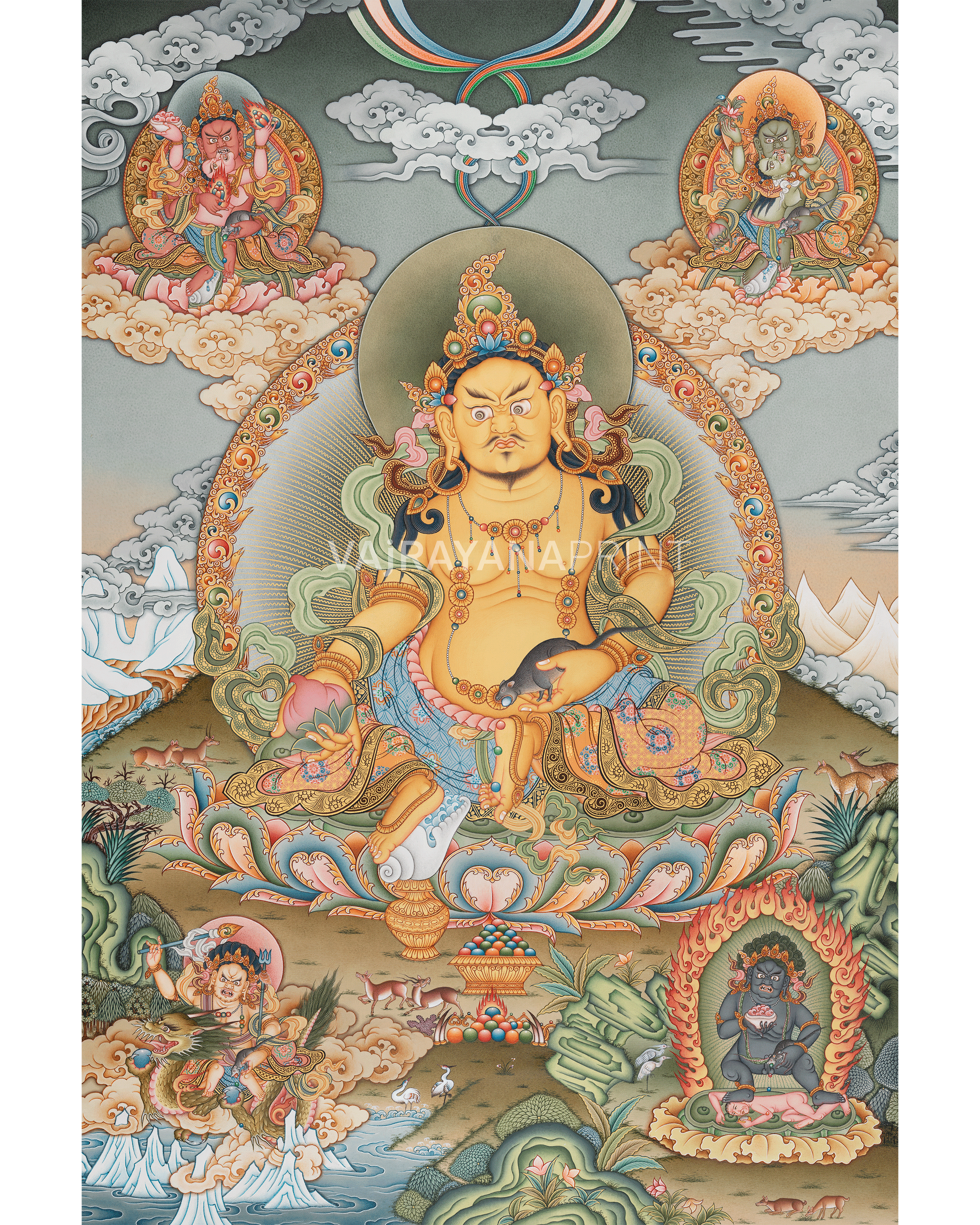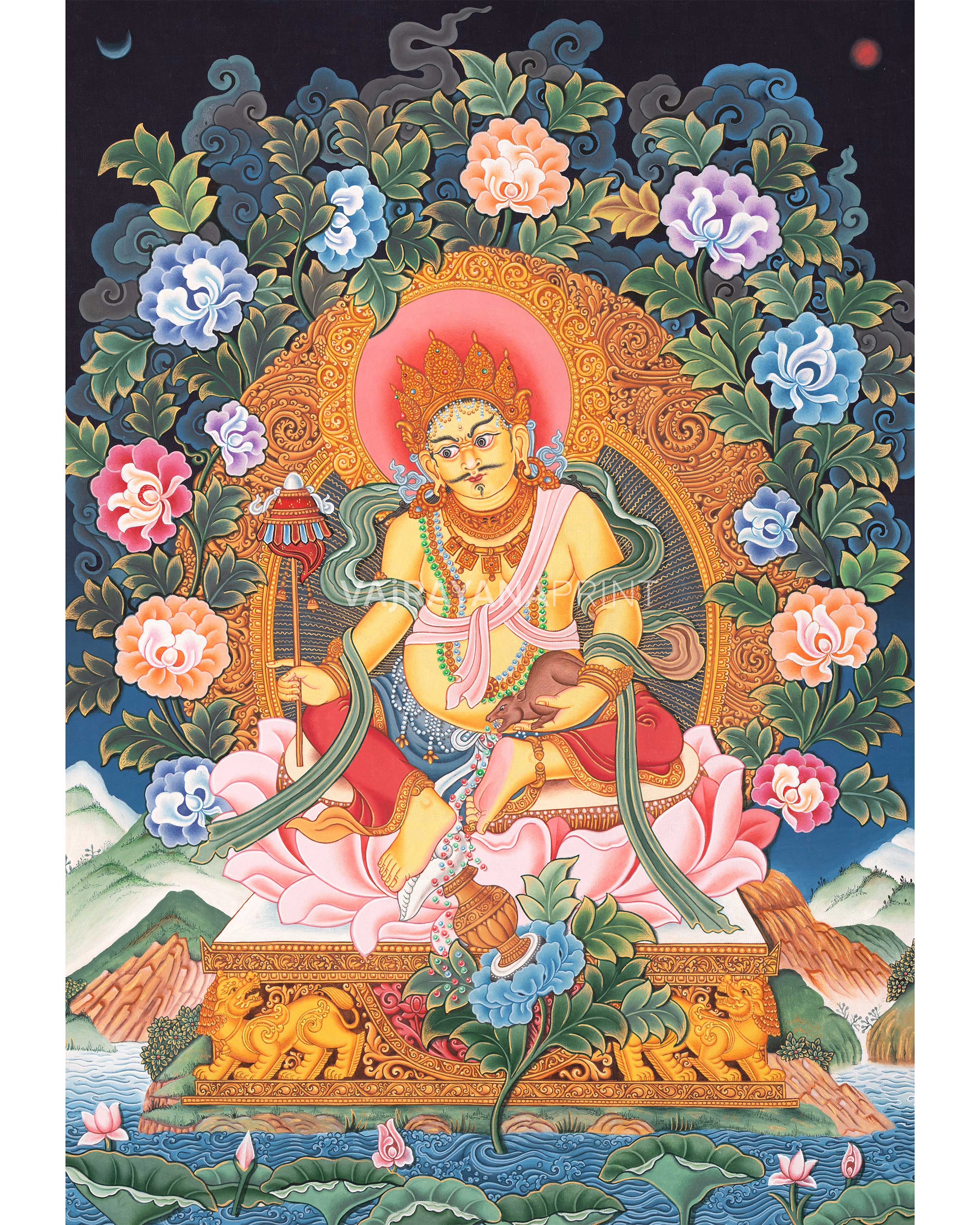Wealth Deity Prints
39 products
Showing 25 - 39 of 39 products
Wealth Deities in Buddhism: Bestowing Prosperity and Spiritual Richness
Background & Significance
Amid the diverse assembly of Buddhist deities, specific figures are revered for their unique ability to bestow wealth, prosperity, and success. However, in Buddhism, the concept of wealth transcends mere material affluence. It encompasses well-being, spiritual luxury, and the inner treasures of compassion and insight. Hence, wealth deities play a dual role for practitioners, guiding them toward spiritual richness while concurrently addressing their material needs.
Attributes and Iconography
One of the most prominent wealth deities in Buddhism is Jambhala (or Dzambhala), originally derived from Hindu mythology, where he is known as Kubera. Jambhala is often depicted as a rotund figure holding a mongoose that emits jewels in one hand. This mongoose symbolizes Jambhala's triumph over Naga spirits, commonly protectors of treasures. Conversely, he may bear a moneybag, a gem, or a fruit. Jambhala can manifest in various colors, each carrying distinct symbolism depending on the culture and region, with yellow and white being the most revered.
Another wealth deity, Vasundhara, is particularly revered in the Newar Buddhist tradition of Nepal. She is typically depicted with six arms, each clutching various symbolic items such as a book (representing scriptures), a sheaf of grain (symbolizing fertility), and diamonds (signifying wealth). Her golden complexion means the abundance she bestows.
Jambhala's compassionate nature is often highlighted in legends. One such tale recounts how the Buddha healed Jambhala after he suffered burns from the wrath of a meditating sage. In gratitude, Jambhala assumed the role of a guardian of the Dharma, offering both material and spiritual support to practitioners.
Rituals Related to Deity
Rituals dedicated to wealth deities involve offerings, chanting of mantras, and visualizations. For instance, a standard method to invoke Jambhala's blessings is to pour water over his image while reciting his mantra.
It's essential to understand that while these deities may grant material wealth, their primary purpose is to alleviate worldly concerns, allowing followers to focus on their spiritual journey. Moreover, the true wealth they bestow often pertains to the abundance of the Dharma, ensuring that one's life is enriched with virtues, wisdom, and compassion.
In summary, wealth deities in Buddhism serve as conduits between the realms of the material and the spiritual. They remind practitioners that while worldly comforts can make the journey more accessible, genuine treasure lies in spiritual riches and the profound wealth of enlightenment.
